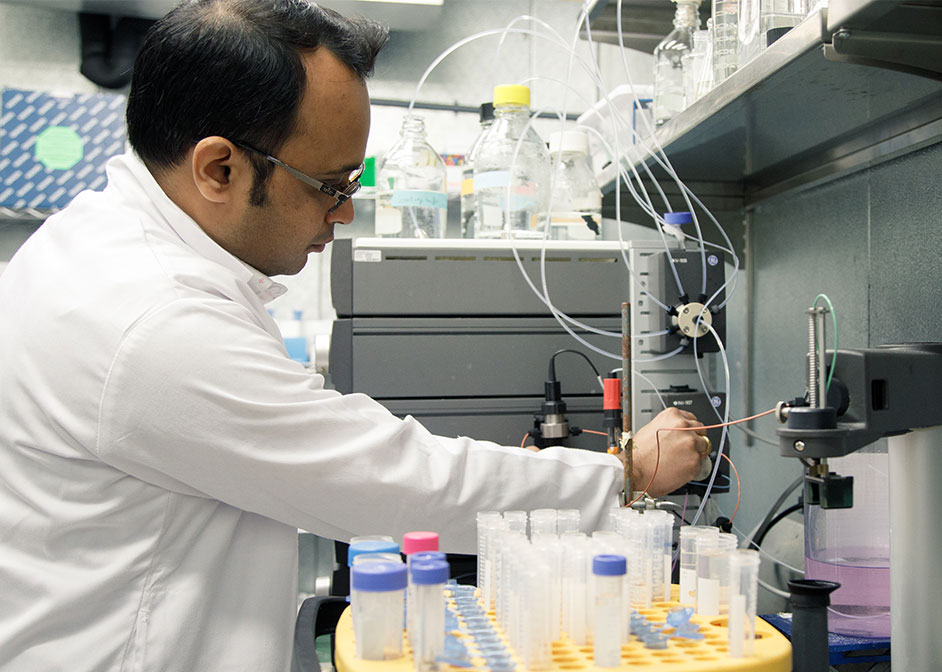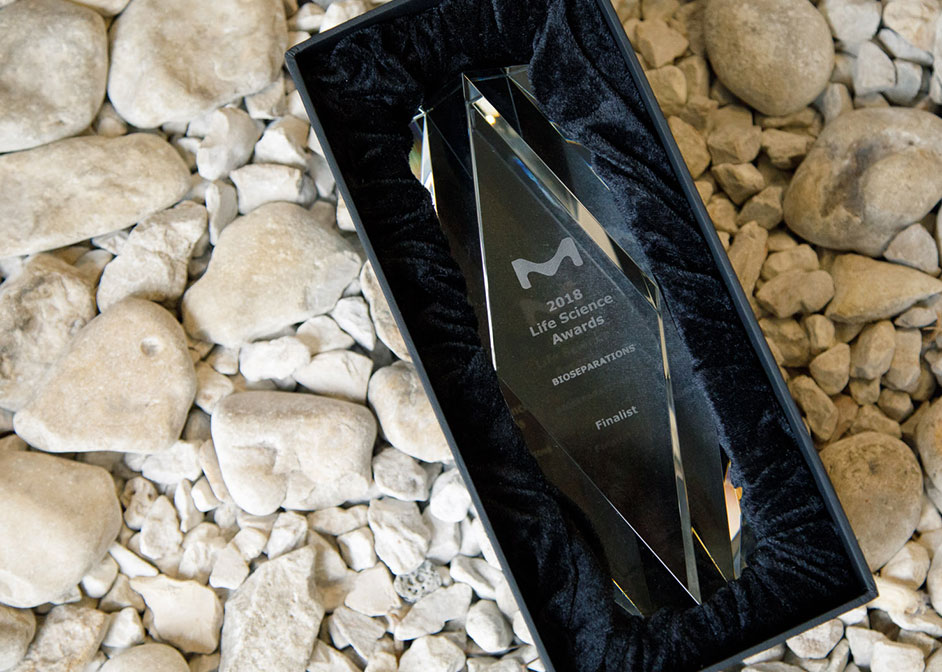Grad Student Selected as MilliporeSigma Life Science Award Finalist
Biochemistry’s Ujwal Patil One of Three Finalists in Bioseparations Category
Ujwal Patil, a University of Houston Ph.D. student in biochemistry, was a finalist for the 2018 MilliporeSigma Life Science Award in Bioseparations.

For this award, selected candidates traveled to MilliporeSigma’s main campus in Darmstadt, Germany, where they presented their research to a group of industry professionals, including company leadership. The competition was open to graduate students from around the world, with finalists selected based on criteria which included innovation, potential impact, and scientific rigor.

The MilliporeSigma Life Science Award was offered in three categories: bioseparations, food & beverage safety, and tumor biology. In each category, four students were selected, with one student awarded a grand prize of $10,000, and the remaining three finalists receiving a $2,000 award.
Antibody Production a Significant Industry
Patil works on methods for isolating therapeutically useful proteins, such as antibodies. His project focuses on developing the technology to monitor antibody purification during the production process.
“This technology will enable real-time detection,” said Patil, whose work is advised by Richard Willson, a professor of biology and biochemistry in the College of Natural Sciences and Mathematics.
In recent years, with the advent of immunotherapies, antibody production has become a hugely significant, multibillion-dollar industry.
Monoclonal antibody therapy works by introducing antibodies which bind to cells or proteins, stimulating the patient’s immune system to attack these targets. Although this is effective against various types of cancer, antibody production is an intensive and expensive process. As a result, these therapies come with a hefty price tag, averaging about $100,000 for a year of treatment.
Purification of Therapeutic Proteins
Reliable production of antibodies at an industrial scale is a vastly complicated endeavor. One critical step in antibody production is purification, which involves passing a solution that contains the antibody, along with various other proteins, through an affinity column. The affinity column contains molecules which selectively bind to the antibody, allowing the remaining proteins to be washed away.
One current hurdle in the purification process is the inability to monitor its effectiveness in real-time. As a single column can only bind a certain amount of antibody, there is a risk of losing valuable product, should a solution contain more than calculated.
“You want to be able to get information about the process as it is happening, so if there are any deviations from the norm, they can know about it in real-time,” Patil said.
Patil has been working on a technology that uses polarized fluorescent light to monitor the amount of antibody bound to these columns. When the antibody binds, the light shifts, signaling the column is getting saturated.
“This technology would minimize time, as well as wastage, in production,” Patil said.
- Rachel Fairbank, College of Natural Sciences and Mathematics
April 16, 2019